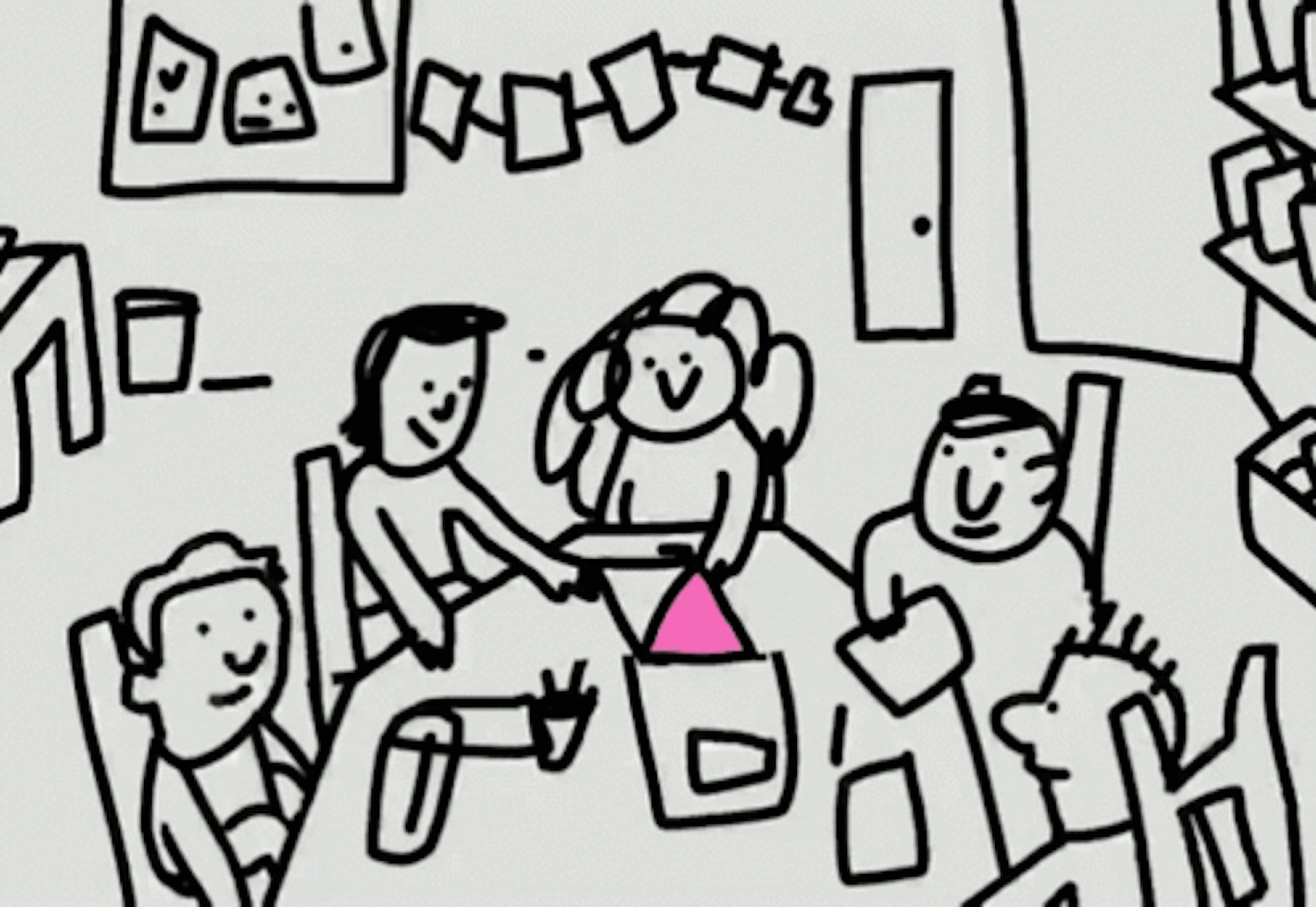What skills are SSE recruiters looking for?
Associations, cooperatives, positive impact companies, social start-ups... The SSE sector brings together a wide range of companies: all sectors of activity are represented there and all trades too. It would therefore be difficult, in terms of technical skills, to draw up a table of those that are most sought after by SSE recruiters, because they are specific to the profession.
On the other hand, we tried to deepen on what makes the particularity of this sector today: the values on which it is based to function and the know-how that results from it.
We let you discover the opinion of recruiters and consultants in the impact sector.
SKILLS DEPEND ON THE STRUCTURE
Jean-Christophe is responsible for the jobs_that_makesense platform, which lists job offers from impact companies and all the resources and training for training in impact. According to him, whether we are talking about SSE or so-called "classic" companies, you must first, as a candidate, identify the type of operation you are looking for and the skills you want to exercise and develop to self. Once this work is done, we can ask ourselves the question of the specific skills or postures that the structures that interest us are looking for.
“The skills expected from recruiters depend a lot on the structure you are looking at and its ability to be innovative. There are classic companies that are innovative in their management and their organization and associations too. But there are also a lot of SSE structures that are very old school. It is up to the candidate to identify whether they wish to join an innovative structure or not. For example, at makesense, there are skills that are highly valued: collaboration and the skills that flow from it, skills related to solving challenges, the ability to mobilize, autonomy, expertise thematic (you are a waste management pro for example), skills related to shared governance and finally those related to coopetition: how you collaborate with external people. For us, these are important skills.
Then in terms of hard skills, it's like for traditional companies. If you do not have the skills related to the sector, either you decide to apply and you can train on the job, or you do a dedicated training. The barriers to entry are not related to the sector of the impact itself but to the sector of the company or the structure itself. Today, there are a lot of skills assessments or professional training offered that allow you to catch up on what your professional life before did not allow you to develop.
Skills repository
“We worked on a skills repository at makesense. We wondered what the specificities of impact recruitment were. What emerged was that the recruiters had no particular requirements, except the need to feel in the candidate, a deep interest, a curiosity for the mission of the structure. It can go through finding in the course of the person commitment actions on the same theme as that of the corporate mission.”

THE IMPORTANCE OF SELF-LEADERSHIP
Claire Bourrasset is the founder of ROUj, a coaching company that teaches learners to reclaim their leadership. According to her, “to respond to current social and environmental challenges and create a world for everyone, you have to be able to have leaders connected to their humanity, to their emotions, in the acceptance of their vulnerability and therefore capable of empathy, of dealing with others, and of bringing out leaders around them”. For Claire, leadership encompasses several skills:
Self-awareness
“The first skill that I try to transmit and which seems essential to me, is self-awareness. There is no leadership without awareness of oneself, of one's emotions, of one's needs. Without self-awareness, we spend our time projecting things, making people around us suffer, making ourselves suffer and feeling like it's not working, because in fact we're not listening to ourselves. It is also the awareness of one's talents: stop trying hard to be good at something that is not our domain. A good leader is there to develop the potential of others, but if I do not know how to develop my own potential, if I am not aware of my strengths and weaknesses, if I do not listen to my emotions, I will find it difficult to accompany others on this path.”
Empathy
“To be able to empathize, you have to be able to be vulnerable: to accept that they exist and to be able to talk about them. But also accept that his version of the world is not the only truth and hear as another point of view just as valid as his, that of the person with a different experience. It is this dual capacity that will allow leaders to truly connect with others and be able to support them in their individual growth.”
The ability to position
“To set limits in your relationships, in your work. Be clear about what you want to give in your professional life: in terms of schedule, mission, values not to be transgressed. How do I learn to be clear about what I want and to make it known accurately?
Speaking out
“When it comes to leadership, for me speaking up comes last. it's everything else before that that's important. If you are clear with yourself, with what you want to embody and how you want to do it: speaking out becomes easier. We tend to hide a little behind that, I have the impression, but the work of introspection which allows us to get to know ourselves, to learn to manage ourselves and accompany others accurately on a daily basis, is that the true work of the leader. Eloquence is great and it can be a very useful tool to federate, but it is not enough to make leadership.

COLLECTIVE INTELLIGENCE & COOPERATION
The gaze of Claire then of Jean-Christophe
“I am not talking about collective intelligence but about the intelligence of the other. For me, it means understanding that the other can function differently, accepting it, celebrating it. It's easier to work with people who work like us, but it's less rich. It also means being able to identify everyone's potential and co-construct something that has an impact because everyone is in their area of excellence. Don't try to force someone into a box."
Claire Bourrasset - ROUj
“Doing a work of collective intelligence depends a lot on the collective. If the collective does not listen to the trainee because he/she has just arrived, you will not have collective intelligence. For me, it comes down to making no value judgment on what is expressed by everyone and bouncing off everything that others say. We agree to tell ourselves that intelligence is everywhere and that we accept not having a central intelligence. It is a very organic system. Perhaps we find it more in the impact sector, but it is a postulate that you can also find in traditional companies, in large groups.
Jean-Christophe - jobs_that_makesense
…And Cassandre's
Cassandre is the co-founder of Fertiles, a training organization that supports people on the notions of commitment and cooperation. For Cassandre, the intelligence of the other and cooperation first go through an understanding of oneself, of one's posture and one's relationship in a group and then move towards a broader understanding of group dynamics.
“The criterion that I think of when I have to hire someone today is: has the person worked on their posture of cooperation? At Fertiles, we support learners to develop this skill, via several axes:
Understand my own functioning
It will go through listening to myself. Why do I act? What is my deep intention when I do something? What drives me and moves me?
Understand my wounds
Understand what activates me based on my wounds: what makes me easily irritated, angry or reactive in front of someone?
By understanding myself, I will be able to react to what activates me. And by understanding my wounds, I can understand that others have wounds too and empathize with them more easily.
Understand the notion of common culture
In all the groups in which I interact, there is often a culture that is present, except that it is implicit. For example, if I join a structure in which little framework has been laid down, there is an implicit culture where we cut each other off in meetings, women will speak less than men, everyone can arrive late. at meetings… if you stick the rules of this organization on a wall, it makes you moderately want to join it. We are going to work to reveal the invisible and put at the center the fact that wherever we go there is a culture. It is important to choose it and ask it. At Fertiles, we will provide a framework for cooperation to make common rules visible and ensure that everyone can commit to them.
We work a lot on “speaking in my self”: saying what I feel, what I think and not telling the general truth that I tell the group.
We will have the notion of listening, active, curious and benevolent.
We try to make learners understand that wherever they go there is a culture that exists and that they can choose to bring a culture that is visible, conscious and agreed to by the whole group.
Understand the dynamics that govern a group and the tools that can regulate these dynamics
Develop a learning culture
I always put myself in a position of learner and feedback culture: I give and receive feedback from others.”
👉 For more information on the formations of Fertiles, it is here
Did you like this article? Also discover:
👉 Learn more about World of tomorrow Skills Trainings : here
